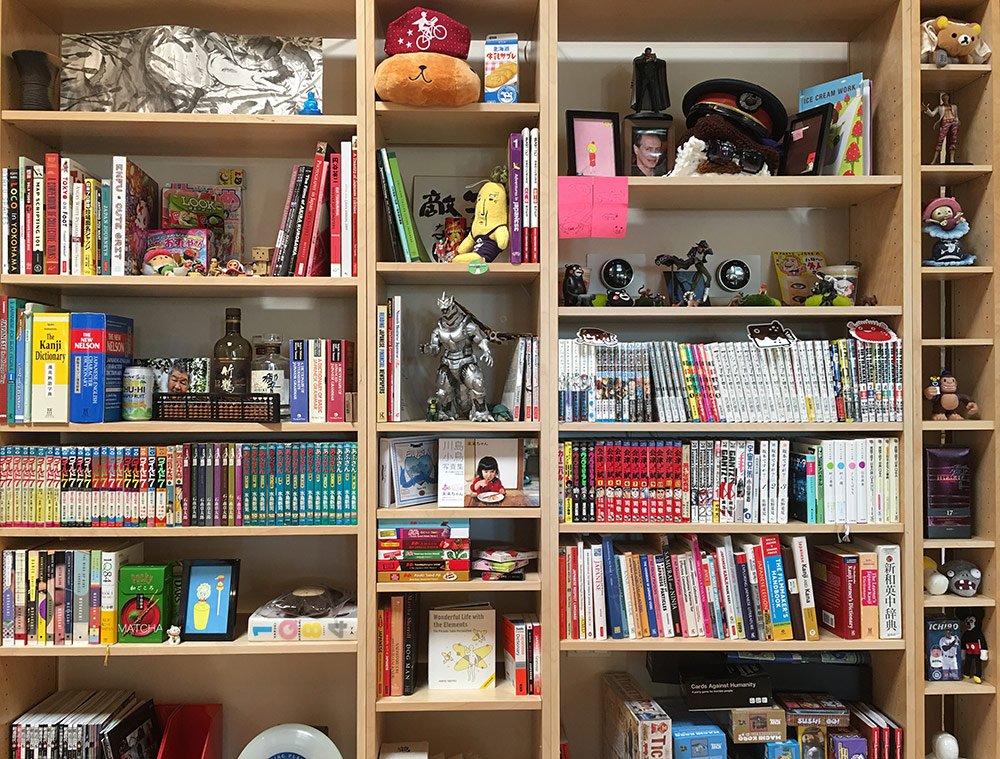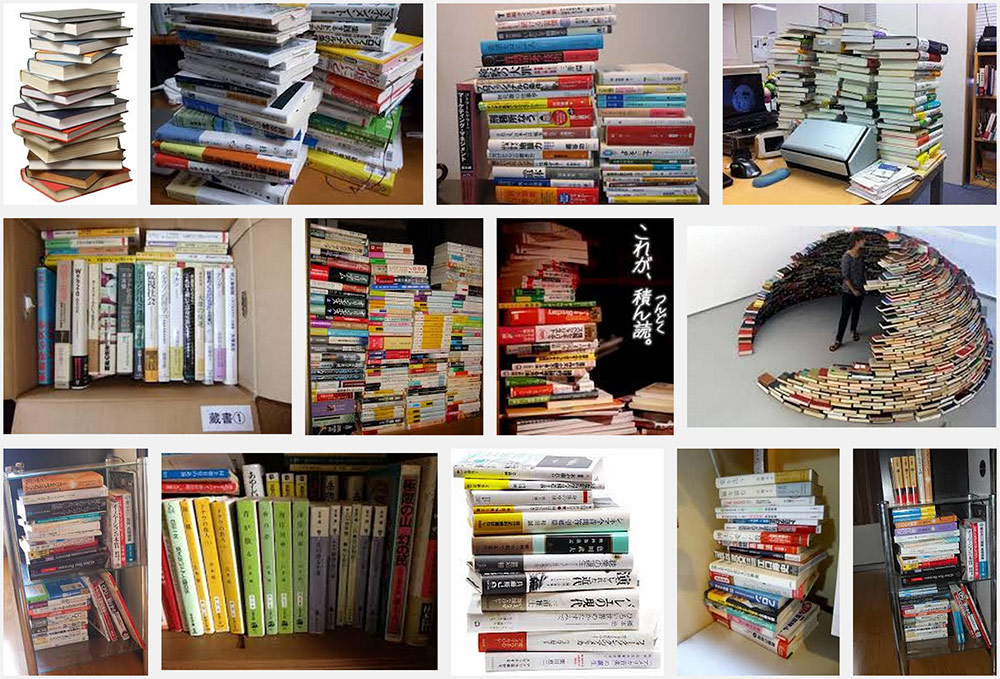While choosing vocabulary words for our kanji learning site WaniKani, I occasionally come across weird-ass Japanese words. This is one of them.
Tsundoku, aka 積ん読. Its definition is:
Buying books and not reading them. [noun] – Jisho.org
Look at your bedside table. Can you relate? I bet a lot of you who are learning Japanese have a big pile of unused Japanese textbooks somewhere, right? Heck, the Tofugu office is guilty of tsundoku, too. I don't think we've read most of what's on our bookshelf.

That being said, tsundoku has more of an image of stacked books. When I think of the word, I imagine somebody's futon on the floor, with a big pile of unread books and manga right next to it. If you break down the word into its component kanji, this "pile of books, not bookshelf of books" theory makes sense.
tsu 積む: pile up, stack
yo 読む: read
"A pile up or stack of things you read…" or in this case, you don't read. A quick Google Image search seems to confirm the "pile" theory.

But how do we get to a pile of books we didn't read? Nothing in the component kanji suggests whether you're reading these books or not. In fact, I'd argue that when you look at the component kanji on their own, it suggest that this is a pile of books you did read, or are currently reading.
I found the answer on this website. It turns out the word tsundoku is a play on words.
The first half of tsundoku 積ん読 comes from the word tsundeoku 積んでおく, which means "to pile things up and leave them." The second half (doku 読) comes from dokusho 読書 which means "reading." Essentially, it's a combination of the words tsundeoku 積んでおく (to pile things up and leave them) and dokusho 読書 (reading). If you paid close attention, you'll have noticed that tsundeoku and tsundoku are very similar sounding words. Thus, a beautiful baby pun was born.
In terms of how to use this word, Mami has whipped up some example sentences for tsundoku 積ん読.
- 僕は 約1000 冊ほどの 積ん読を 抱えて 生きている。
- I'm living with around 1,000 tsundoku (books).
- 今週末は、 積ん読リストを 作ろうと 思う。
- This week I think I'm going to make a tsundoku list.
- 積ん読 用のお 洒落な 本棚が 欲しい。
- I want a stylish bookcase for my tsundoku (books).
It's a noun, so go ahead and use it as you would any other noun. If you were to refer to your pile of books next to your bed, you would say "that's my tsundoku" (that's my pile of books I bought but haven't read).
Tsundoku Elsewhere
And while we're trying to turn tsundoku into an English word, we might as well apply its feeling to other things as well. Steam library? That's Steamdoku, and I am so guilty of this.

And how about smartphone apps? I have so many that I've purchased and never used.
To get even more meta, though, I have a folder on my phone of reading-related apps that's labeled 積ん読. And you guessed it, it's piled full of things I will probably never read.

That being said, I can't complain. Tsundoku is essentially a mild form of hoarding, which isn't the worst problem one can have. What parts of your life do you commit the act of tsundoku?
